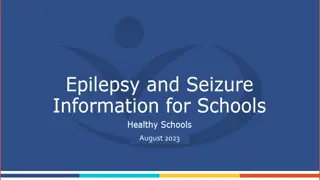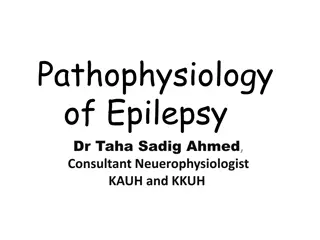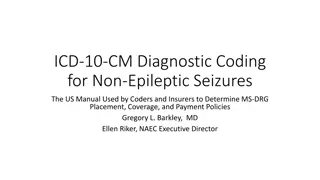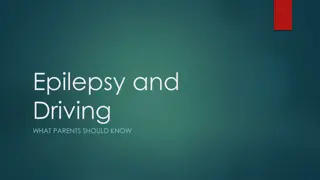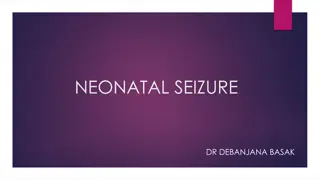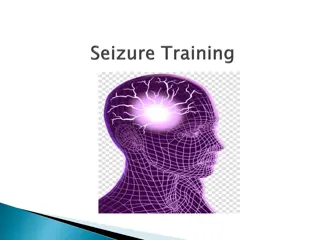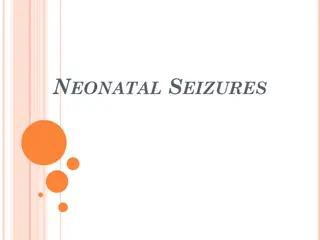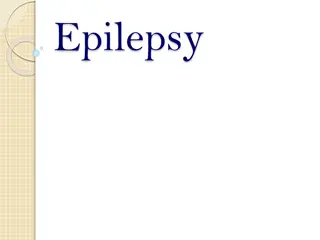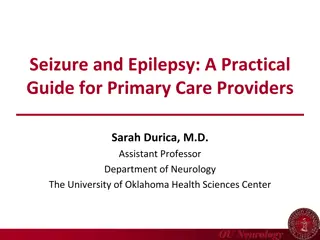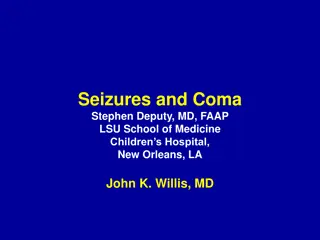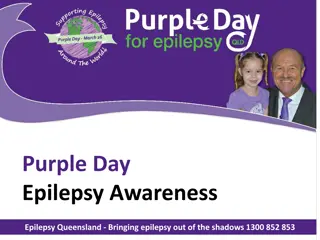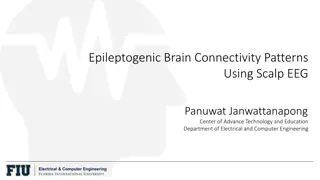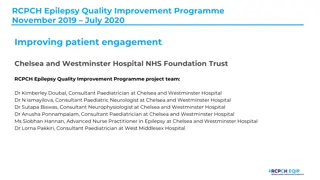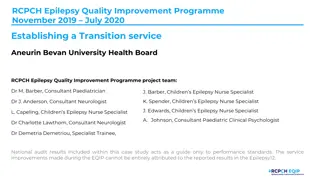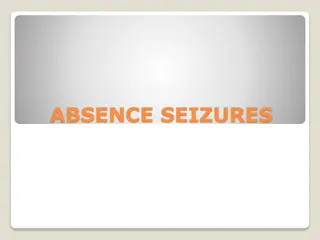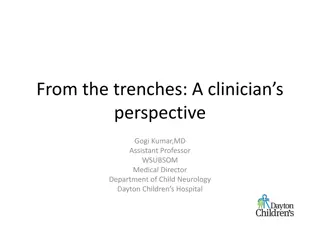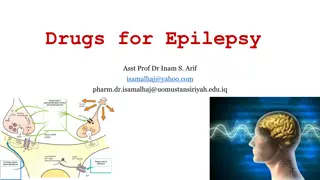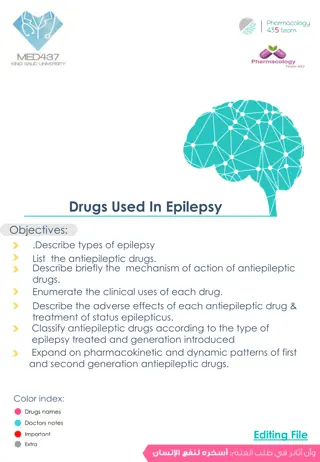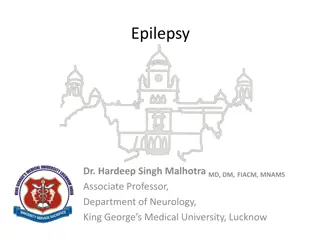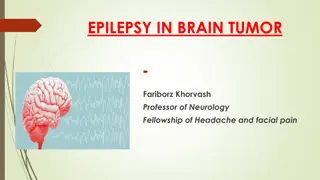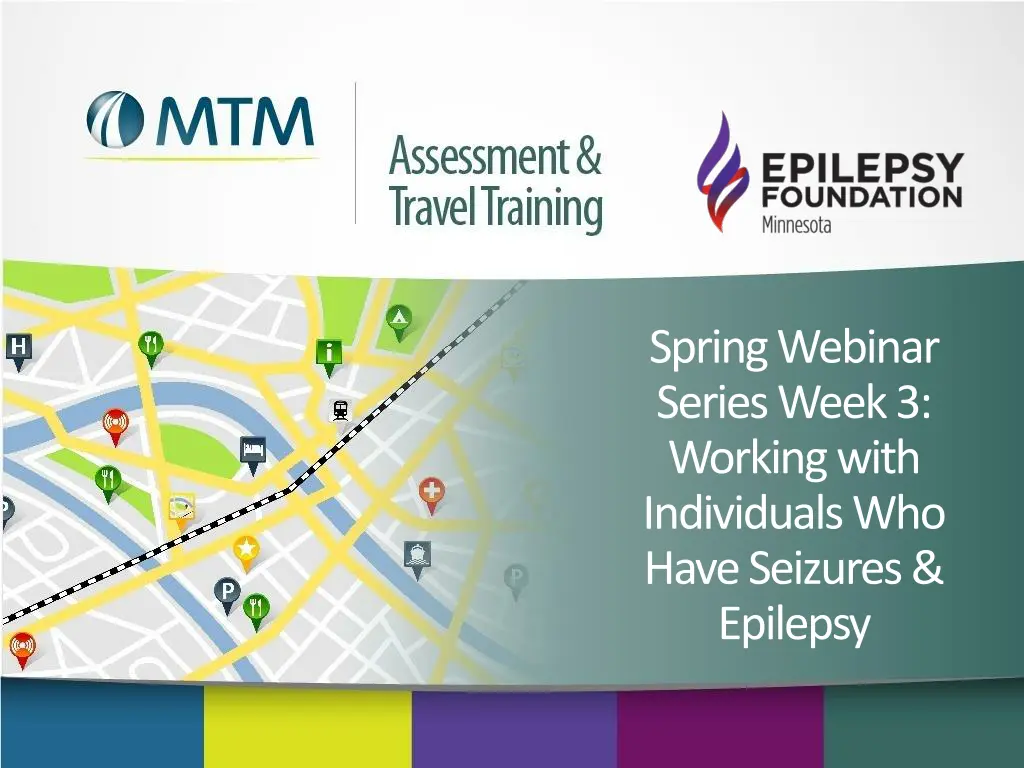
Understanding Seizures and Epilepsy: A Comprehensive Guide
Dive into the world of seizures and epilepsy with this informative webinar series. Learn about the causes, triggers, classifications, and appropriate responses to seizures. Gain insights on how to work effectively with individuals who have these conditions. Enhance your knowledge and understanding of epilepsy to provide better support and care.
Download Presentation

Please find below an Image/Link to download the presentation.
The content on the website is provided AS IS for your information and personal use only. It may not be sold, licensed, or shared on other websites without obtaining consent from the author. If you encounter any issues during the download, it is possible that the publisher has removed the file from their server.
You are allowed to download the files provided on this website for personal or commercial use, subject to the condition that they are used lawfully. All files are the property of their respective owners.
The content on the website is provided AS IS for your information and personal use only. It may not be sold, licensed, or shared on other websites without obtaining consent from the author.
E N D
Presentation Transcript
Spring Webinar Series Week 3: Working with Individuals Who Have Seizures & Epilepsy
Welcome & Introduction Amanda Pike Education Senior Program Manager The Epilepsy Foundation of Minnesota
Epilepsy is A neurological disorder of the brain characterized by the tendency to have recurring seizures May also be called a seizure disorder Proper terminology
What Happens to the Brain During a Seizure?
Possible Seizure Triggers Failure to take medications Lack of sleep Stress or anxiety Dehydration Photosensitivity strobe lights Menstrual cycle/hormonal changes Environmental
Seizure Classification Focal Onset Seizures (partial) Involves part of brain May or may not have change in awareness Symptoms relate to the part of brain affected Generalized Seizures Involves whole brain Convulsions, staring, muscle spasms & falls Most common are absence & tonic-clonic
Focal Seizures Without change in awareness: Simple Partial Seizures Uncontrollable shaking movements Sensory seizures No impairment of consciousness No immediate action is needed other than reassurance & emotional support
Focal Seizures With change in awareness: Complex Partial Seizures Most common seizure type Unaware of surroundings & unable to respond Repetitive, purposeless movement
Appropriate Response to Complex Partial Seizure Stay calm Track time Do not restrain Gently direct away from hazards Remain with the individual until they have gained full awareness
Absence Seizures (Formerly Petit Mal) Characterized by brief staring Starts & ends abruptly Quickly returns to complete awareness Appropriate response includes documentation
Generalized Tonic-Clonic(Formerly Grand Mal) NOT the most common seizure type Completely unconscious; loss of control May cry out or make noise May have irregular breathing Lasts five minutes or less
Appropriate Response to Generalized Tonic-Clonic Remain with person until they have regained full awareness If seizure lasts more than five minutes, call 911 Recovery period: postictal state Not included in timing of the seizure
Convulsive Seizure on a Bus Safely pull over & stop bus Place person on their side across the seat facing away from the seat back or in aisle Follow standard seizure response protocol Continue to destination or follow policy
Call 911 if the Person Is injured Has diabetes or is pregnant Does not resume normal breathing or breathing stops Has a first-time seizure Has a seizure in water Situation escalates
Public Transportation Be aware: a seizure isn t always loss of consciousness Communication is key! Ask them Look for medic alert bracelet Stay calm! Explain to others what is happening
Contact Information & Questions The Epilepsy Foundation of Minnesota envisions a world where people with seizures realize their full potential Website: www.efmn.org Phone:800.779.0777 Facebook: Epilepsy-Foundation Minnesota Twitter: @EpilepsyMN

